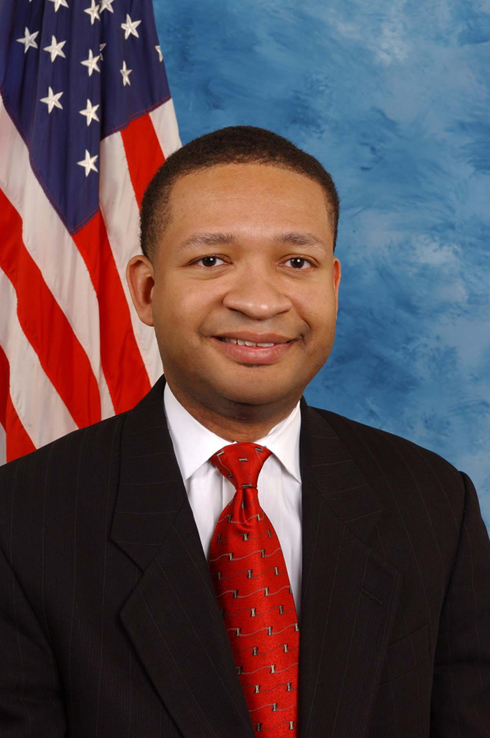Artur Davis was never going to have an easy time becoming the first black governor of highly white, highly Republican Alabama. But in the end, he wasn’t even able to make it past the first round, losing to Ron Sparks in last night’s primary by a significant margin, after having dominated in the polls up until the eve of the election. How did such a charismatic and well-qualified pol, once considered a rising star in the Democratic party, allow his entire political career–his seat in Congress, his gubernatorial aspirations, his favor in national politics–to fizzle out?
Alabama political veterans say his major error was seeking to distance himself from Democrats–and particularly influential black organizations–at an early stage in the campaign, sacrificing principles for politics and taking for granted the very people who ultimately turned on him. Davis assumed–or took a huge gamble–that the historical promise of becoming Alabama’s first black governor would be enough to rally his base–despite black leaders’ endorsement of his white opponent–and that he could pre-emptively move to the right ahead of the general election in at times craven ways. He was wrong.
Former Congressman Glen Browder chalks Davis’ defeat–and the huge swing in the polls–up to three key issues: Davis’ loss of support among those black voters in the final days; a depressed turnout, resulting from likely voters who, torn between the two candidates, stayed home in the end; and a steep falloff from 2008, when voter turnout, driven by President Obama’s historic presidential bid, was much higher.
“As one black leader told me you can spend all your money on [ads] but black people make their minds up among themselves, or at their churches, or at the organizations, and they tend to trust [black leaders] more than they trust commercials,” Browder told me. Those leaders came out hard for Davis’ opponent.
Richard Arrington, Jr., the first black mayor of Birmingham, endorsed the white Sparks. So did Joe Reed, a civil rights leader and chairman of the Alabama Democratic Conference. That, as Browder notes, had a number related effects, but crucially it inflated Davis’ poll numbers among likely voters, many of whom stayed home, or changed their minds when the election rolled around.
“[Black voters] get together late in the campaign–the endorsements were in April or May…then what happens on Sunday before Tuesdays election in a lot of black churches, the word goes out, the cands make their appearances, their surrogates make their appearances.”
The data hasn’t been compiled yet, but Browder’s examining the so-called “Black Belt” and in an aggregate of Alabama’s 12 black majority counties, where the Democratic electorate is overwhelmingly black and the Republican electorate is overwhelmingly white, he finds that Davis still lost to Sparks, by a similar margin to his statewide defeat.
According to Browder, It’s an open secret in Alabama that, in both primary and general elections, Democrats need overwhelming support among black voters to succeed. Davis gambled, thinking, in Browder’s words, he “could appeal to blacks as an independent agent rather than going through the establishment.” And he lost.
Joe Turnham, chair of the Democratic party in Alabama told me Davis dropped the ball on the ground game, particularly in rural areas, and that his move to the right hurt him among his own voters. Turnham knew the polling was off. “I think he carried one county in his congressional district,” Turnahm said. “He was running for November instead of the primaries. That was a calculated move that wasn’t smart.”
“I’ve been there,” Browder explained. “As a centrist Democrat, I did the same thing throughout my career. I had to run in the Democratic primary but I kept in mind that I had to win in November.”
“I guess I have mixed feelings about it,” said Benard Simelton, President of NAACP’s Alabama State Conference, in an interview this afternoon.
Simelton says Davis problems began early when he opposed President Obama’s health care plan, and deliberately eschewed the endorsements of the major black organizations in Alabama.
“Mr. Davis kind of got out on the wrong foot with his potential supporters early on when he didn’t support the President’s health care bill,” Simelton said. “ADC [the Alabama Democratic Conference] and New South Coalition supported Mr. Sparks early…. Ron Sparks went out and sought their support, and they endorsed him. When [Davis] came out initially and said that he did not support the President’s health care plan, it raised a lot of eyebrows.”
Simelton says other, more minor, factors didn’t help Davis. A number of Democratic voters, he said, voted with a Republican ballot in order to sink former Democrat Parker Griffith. Many of them otherwise might’ve been Davis voters.
“There were a lot of people who voted Republican who are true Democrats and probably would’ve supported Artur Davis, but they did not want Parker Griffith back in there. He had courted the black vote in his initial run, and they had supported him very well, and he became Republican for some reason and started bashing the President.”
But that effect was minor compared to the impact the black establishment had.
Months later their opposition translated into a defeat that appears stunning on its face. According to a mid-May Research 2000 poll, Davis lead sparks by almost 10 points. Yesterday, by taking his base for granted, with the hope of shoring up support in the center and center-right, he lost 62-38. Which means the question of whether Davis could have won the governor’s race under any circumstance will remain unanswered.










